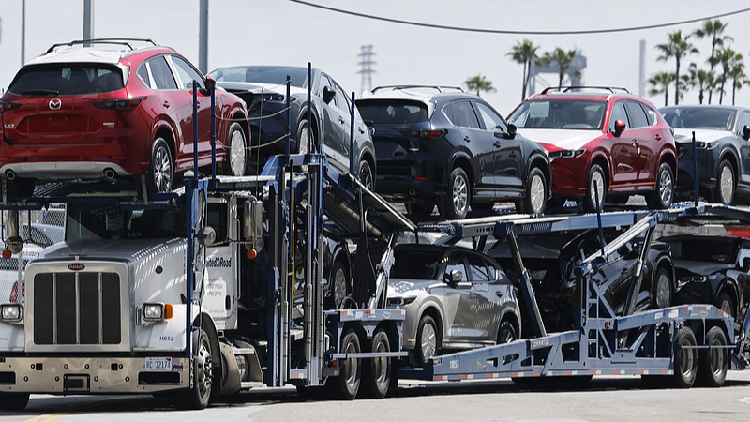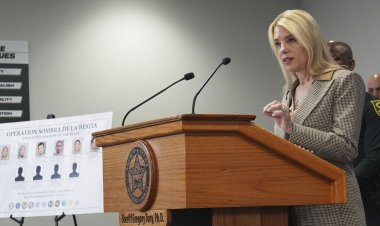Japan's Prime Minister to Negotiate Tariffs with Trump Following Unsuccessful Exemption Efforts
The U.S. has declared a 24 percent "reciprocal tariff" on imports from Japan, set to take effect on April 9. Furthermore, the Trump administration's 25 percent tariff on all auto imports was implemented as planned on Thursday, severely impacting Japan's auto industry, which represents about 3 percent of the nation's GDP.

"I will talk logically about how much Japan will benefit," Ishiba commented during a Saturday TV program, noting that Japan may consider increasing its investments in the United States.
He also made it clear that Japan has no plans for retaliatory tariffs against the U.S., stating, "We will not go tit-for-tat."
On Wednesday, Trump introduced a new set of tariffs, including 10 percent baseline tariffs on imports from all trading partners and steeper rates for certain countries. Japan, facing an unexpected 24 percent levy, has been actively lobbying for an exemption.
Ishiba intends to request that Trump reconsider the tariffs by emphasizing Japan's role as the largest foreign investor in the U.S. Local media reported that Ishiba remarked on Friday that the new tariffs have created a "national crisis" for Japan.
Despite extensive diplomatic engagement aimed at altering Trump's stance, Japan was met with disappointing news on Thursday as it learned it would be subject to a reciprocal tariff, which the U.S. claimed was justified by a 46 percent trade imbalance with its ally.
Ishiba expressed his disappointment at the lack of an exemption from Trump's tariffs and committed to implementing measures to support domestic industries coping with the adverse effects.
Japanese officials have raised concerns about whether the tariffs conform to World Trade Organization agreements and have questioned the validity of some U.S. claims regarding Japan's tariff policies.
The Daiwa Institute of Research has projected that Trump's 24 percent reciprocal tariffs could reduce Japan's real GDP by 0.6 percent in 2025, following a minimal growth of 0.1 percent in 2024.
To mitigate the impact, the Japanese government is planning to facilitate access to state-backed loans for small businesses, as Ishiba highlighted.
Trade Minister Yoji Muto revealed that his ministry formed a task force on Thursday to assess the tariffs' repercussions after his appeals to U.S. Commerce Secretary Howard Lutnick fell short just before Trump's announcement in the Rose Garden.
Trump specifically criticized Japan's rice market, claiming it imposes a 700 percent tariff, a figure that Japanese Agriculture Minister Taku Eto dismissed as "illogical."
Eto stated, "You can't arrive at the figure through any calculation. It's incomprehensible."
According to the WTO's minimum access framework, Japan has a tariff-free rice import quota of about 770,000 metric tons annually and applies a levy of 341 yen per kilogram on imports beyond that limit.
Japanese automakers are particularly affected by U.S. auto tariffs. A previously announced 25 percent tariff on all car imports took effect as scheduled on Thursday, posing a significant challenge to the Japanese auto industry, which contributes roughly 3 percent to the country's GDP.
The International Trade Centre has estimated that Japan could forfeit $17 billion in car export potential to the U.S. due to these new tariffs. "Japan's automotive sector comprises 20 percent of the country's total exports and the majority of exports are headed to the U.S. market. Now the flat 25 percent tariff on the sector that came into force yesterday means that Japan could lose 17 billion dollars in export potentials in the U.S., according to our calculations," said Julia Spies, ITC chief of trade and market intelligence, during a press briefing in Geneva.
Trump's 25 percent auto tariffs will apply to over $460 billion worth of imports of vehicles and auto parts each year, based on a Reuters analysis of tariff codes from a federal register notice.
The latest updates to Trump's auto tariff proclamation included nearly 150 categories of auto parts that will be subject to tariffs starting May 3, following the activation of 25 percent tariffs on vehicle imports as of Thursday midnight.
According to the UN Trade agency, countries like Slovakia, Japan, and Honduras are particularly vulnerable to U.S. automotive tariffs, as a significant portion of their automotive sector exports goes to the U.S. market.
The ITC indicated that Japan might look to diversify its vehicle export markets. "Markets such as China, Germany, the Philippines, and Thailand together hold unrealized export potential for Japanese vehicles that matches the estimated loss in the U.S. market," said Spies.
Mark B Thomas contributed to this article for TROIB News
Find more stories on Business, Economy and Finance in TROIB business












